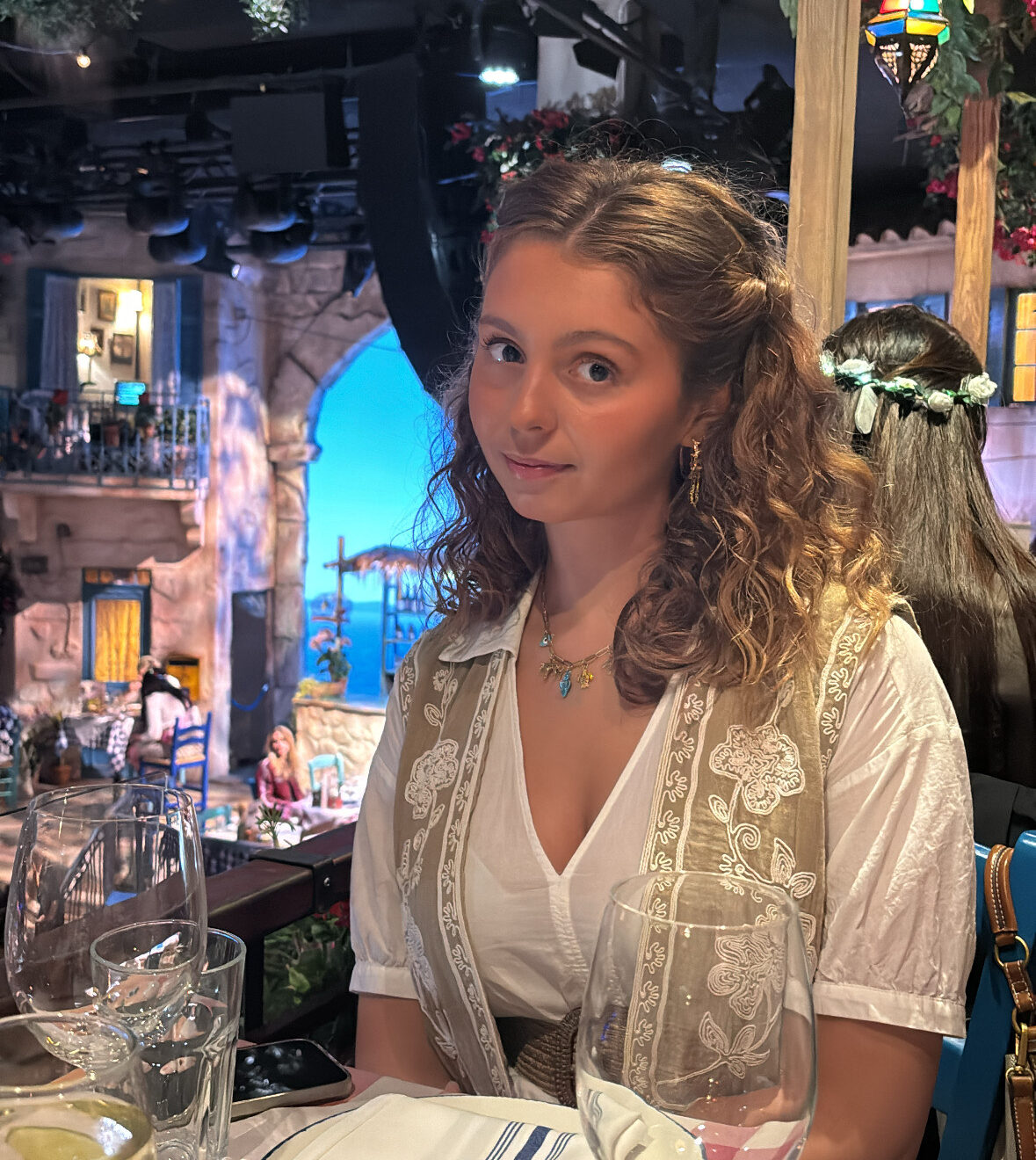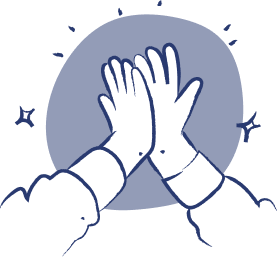Anti-NMDAR Encephalitis Lived Experience — Casey’s story

Casey shares her experience of anti-NMDAR encephalitis
Falling ill
In November 2016, I fell ill. It was a normal illness, much like a cold or the flu; however, something felt wrong, so my mum took me to the hospital. I was given a diagnosis of viral meningitis and treated with two courses of antibiotics. Everything was presumed well and outwardly I seemed normal. The Christmas period passed without a hitch, and I was okay until the end of January. It was during an English lesson in my last year of primary school when my behavior began to slip. I felt my vision begin to swim and, before I knew it, I had passed out. That was the last day I spent at primary school. Everything happened so quickly after that; I lost the ability to walk, talk, and eat. Then, I experienced psychosis, which led to several hospital visits where they continued to treat me as a psychological case; I was then referred to a mental health specialist who gave me an incorrect diagnosis of psychosis. During this time, I also missed my 11th birthday. A correct diagnosis of anti-NMDAR encephalitis wasn’t made until my seizures began. It was only after experiencing 7 seizures in one day that my local hospital referred me to the neurological department in the Evelina London Children’s Hospital, London, UK. On March 3rd 2017, I was transferred to the pediatric intensive care unit and, following several diagnostic tests—including an MRI, ECG, and lumbar puncture—I was diagnosed with anti-NMDAR encephalitis.
I continued to get worse from then on, spiraling into a psychotic state; an 11-year-old who was hallucinating that there was a plot to attack her within the hospital, convinced that any treatment would kill her, and always fearful that she was being watched. It is both a blessing and a curse that I cannot remember this period of my illness.
Encephalitis rehabilitation
In mid-March 2017, I began to take a combination of medications—anti-psychotics, epilepsy medication, and steroids—to reduce the brain inflammation directly by targeting my immune system’s response. Initially, progress was slow, and my parents began to fear that I wasn’t responding to the treatment; however, I began to recover. It is strange learning to walk and talk and feed yourself again, I felt so degraded and alone.
I was discharged at the end of April 2017 and, by September 2017, I began secondary school as a full-time student. Within a year, I appeared to be back to myself again.
Relapse 2020
In early September 2020, at the height of the coronavirus pandemic, I began my fourth year at secondary school. I was seeing a neuropsychologist to help me cope with my mental, fearfully aware that my encephalitis could come back at any time. I was under the impression that it was my fault I had gotten ill and, no matter how unreasonable it seemed, I could not shake the feeling that I was going to be ill again soon.
On the 30th of October, I dyed my blonde hair a bright shade of red while everyone else in the house was asleep; that’s when I knew something was wrong. I rinsed the dye out that night, but I couldn’t hide it forever, so I made up a story about wanting to try something different.
On Monday November 16th, I sat an English literature exam and something felt wrong. I’d always been a conscientious student, but I couldn’t write anything, my hand was stuck, I couldn’t move it anymore. That day I was supposed to walk home from school, but my mum picked me up instead. I think she just knew something was not right, and within a week of consistent contact with the neurological team at the Evelina London Children’s hospital, I was admitted.
In the 7-day period before I was admitted, I became decreasingly lucid and much less aware of my surroundings. This time I felt like I was drowning. My admission notes stated that I presented in a ‘nihilistic’ manner; the first few days of my admission are hazy, although I remember more than my first experience. It is uncommon to relapse, but after testing spinal fluid from a lumbar puncture, it was clear that I had. I was 14 at the time of my relapse and had been in remission for nearly two years. Once again, I had been set back and, although my symptoms seemed much more manageable on the surface level, I felt so much worse; I was so tired and felt as though I was a burden to the medical staff, as if I was taking up too much of their time.
COVID-19
During the COVID-19 pandemic, visitation in the hospital was strictly limited; however, in my confused state, I didn’t understand why no-one wanted to see me anymore, instead I found myself looking forward to seeing new patients and I made many friends on my ward—we were all lonely, sick children who needed some comfort and our compromised immune systems made that somewhat difficult in the midst of a global pandemic.
This time, the treatment I was offered was one which wasn’t available in the first instance of my illness. It was an intravenous treatment called rituximab. This worked at a much faster rate than the steroid treatment, and I was in recovery only a month after the initial relapse diagnosis.
I didn’t return to school until May 2021, and I missed a large part of my education; leaving me at a significant disadvantage when it came to end of year examinations. There was a huge amount of stress and pressure placed on me and I felt that they lacked a significant understanding of what I had been through. To raise awareness within my school community, I wrote a speech which I presented to my class and answered questions. The speech I wrote was very personal to me and went into detail about what I had faced.
The doctors and nurses I met whilst in hospital were incredibly important for my journey, they were always so incredibly uplifting during such a dark time and encouraged me to express myself through art whilst I was non-verbal, which proved to be incredibly beneficial for me and is something that I still do.
Relapse 2023
The unexpected happened in January 2023. Three days after New Years Day, I had been back at school for one day before I was pulled from classes by my parents; they recognized something which I could not see and, on the 10th of January, I was admitted back to the Evelina London Children’s Hospital, with the suspicion that I had relapsed again.
My behavior was described as ‘out of character, as if she’s given up’ and even though I knew it was true I couldn’t face it again. I lost the ability to walk, talking was exhausting, so I just stopped; then followed the delusions and cognitive confusion. I became much like a shell of a person, and required a physical therapist this time, my body had given up.
Similar to my first incidence of encephalitis, I had a lumbar puncture followed by steroid treatments whilst awaiting results. My doctors all agreed that I had suffered a secondary relapse, but my lumbar puncture produced no firm results. This lack of closure was not much help to me and if anything made me feel much worse, almost invalid.
I slowly got better, I still lacked so much of myself for a long time following this ‘relapse’ and found it much harder to bounce back the way I felt was expected of me, but with the support of my psychiatric team, I learnt to process my emotions in a much healthier way and managed to become more of who I was before the encephalitis, whilst learning how to be after it.
What I’ve learnt
I would never have been able to progress the way I have without my family, especially my parents, and my nan. My parents had to take long periods off work to care for me, whilst still taking care of my two siblings. There was always so much to be done, and I’ll always be grateful for how much they gave up to be by my side consistently through lengthy hospital stays, consultant appointments, and psychiatric evaluations. I was often awake late into the night, babbling about nonsense and throwing insults at my mum and nan, something I often think back to and regret, no matter how many times they tell me it was not my fault.
I’ve also learnt that being ill and unable to care for yourself can come with a lot of guilt and feelings of being a burden, and it has taken a very long time to realize that being ill was not my choice, nor was it anyone’s fault; this realization helped me to move on.
My parent, who have watched me come so far, always say how proud they are of me, that it’s been so wonderful to watch me go from their ‘poorly little girl’ to the ‘woman I am today’ and I will forever be so grateful for their unwavering support.
Where I am now
Currently, in the summer of 2024, I have received my A-level results and will be taking a gap year before studying a degree in Marine biology—during my gap year I’ll be travelling abroad and volunteering.
There is still a long road ahead of me, but I’ve already come so far from where I began. I still go about my days with the fear that at any moment I could relapse again—the fear is so paralyzing that some days I struggle because of how much life I’ve already lost to encephalitis. Since having started my recovery, it seems to me that I ‘feel’ more, so I celebrate the time that I have when I am capable of doing the things that I love.
Everyday that I wake up I get a sense of relief because I know what it feels like to think it could be my last.
Post encephalitis, I have experienced a variety of mental health challenges —including an anxiety and depression diagnosis—which I am currently working on, but I no longer let my brain injury and its effects define me.
(story published September 2024)
Get help
Our support team are available from 9am to 5pm (GMT), Monday to Thursday, and 9am to 4.30pm (GMT) on Fridays.
To get in touch, simply call +44(0)1653 699599.
Contact our helpline
